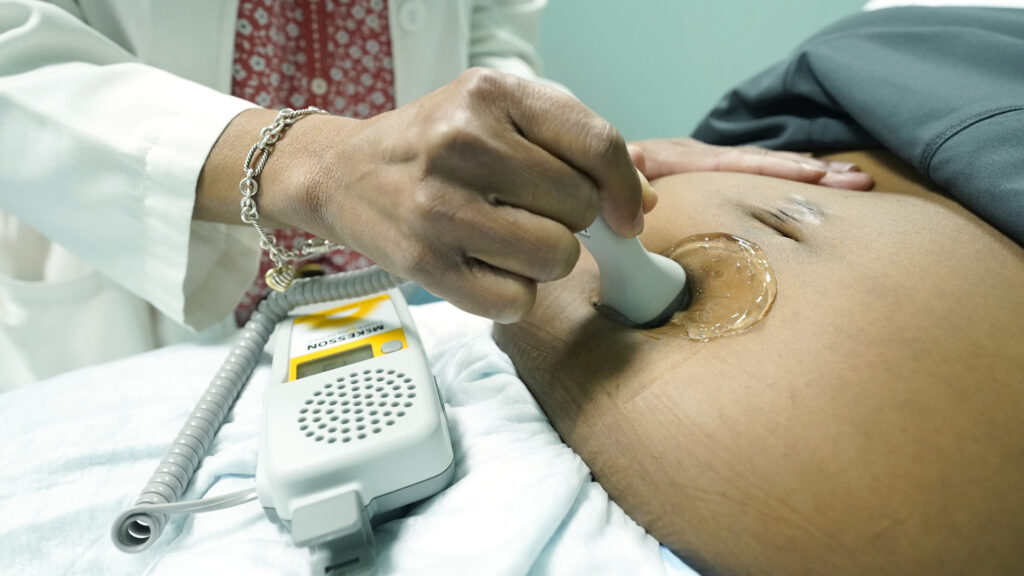You don’t have to be a public health professional to know that the U.S. has the highest maternal mortality rate of any high-income country. It’s chilling, sobering, and unacceptable. The situation is particularly dire for Black women, who are four times more likely to die than white women.
Conditions are worse in Southern states. In particular, Louisiana ranks 47 out of 48 states for maternal mortality. (California and Texas are not included in the rankings because they were analyzed separately.)
advertisement
Yet Louisiana may also be the place where some of the most important work to reduce maternal mortality is taking shape. That’s because community leaders in the Pelican State understand the maternal mortality crisis to be a mental health issue as much as — if not more than — it is a physical one.
We are policy, medical, business, and law students at Harvard, and we spent much of the first half of 2024 engaging with health care providers, doulas, policymakers, community organizers, and activists who are deeply committed to better maternal outcomes in Louisiana. We came away convinced that reducing maternal mortality nationwide means tackling the lack of investment in mental health — and while it’s too soon to say what the ultimate impact will be, Louisiana is taking that challenge seriously.
Most Americans might imagine maternal mortality means the death of a pregnant person during childbirth, or due to a health-related complication such as a hemorrhage. But the term captures any death of a person during pregnancy or up until one year after delivery, including a mental health-related death. This is no small matter. The Centers for Disease Control and Prevention reports that mental health conditions, including deaths due to suicide and overdose, are the biggest contributors to maternal mortality nationwide.
advertisement
In Louisiana, accidental overdose was the state’s leading cause of pregnancy-associated death in 2020, and the infrastructure for addressing this is missing. Nearly 79% of Louisiana citizens reside in areas without sufficient mental health services, compared with just under 50% of people living in the U.S. Louisiana has a shortage of mental health professionals, with only 26% of the mental health care needs currently met statewide.
Shorter-term solutions may leverage OB-GYNs who primarily facilitate prenatal care. While some OB-GYNs have expressed discomfort with providing mental health services, a push is underway to provide this care through a “one-stop shop” approach. The Louisiana Mental Health Perinatal Partnership (LAMHPP), for instance, offers training, consultation, and resources to clinicians to enhance their ability to support prenatal mental health issues. They do this by staffing a hotline for medical providers to call when they encounter patients with complicated mental health concerns. At this stage, LAMHPP has provided up to nine consultations per week, with expansion underway.
Louisiana is also deploying the Doula Registry Board, which helps register doulas for insurance reimbursement. In fact, Louisiana is just the second state to cover doula care through private insurance. Doulas provide fundamental support to the pregnant person, whether social, cultural, or educational, facilitating their comfort and empowerment in critical milestones to delivery. While they are not mental health care professionals, doulas’ support can be essential for pregnant people to not just survive but thrive through the pregnancy and the year after delivery.
Creative care models have also surfaced in Louisiana to help support moms. After her tenure as the secretary of the Louisiana Department, Rebekah Gee, an OB-GYN, created Nest Health to embed compassion in prenatal care through home and virtual visits. Nest, covered by Medicaid, offers mental health care for pregnant people at risk of having to travel over an hour for prenatal care. Nest is driven by the harrowing CDC statistic that “more than 80% of maternal deaths are preventable.”
advertisement
These programs are currently benefiting pregnant people and in a matter of a few years their collective impact could begin to show up in reduced mortality statistics.
But until it is universally accepted that mental health is an irrefutable part of maternal health, these initiatives will face challenges in gaining the widespread support they need.
Without buy-in from politicians and policymakers, these programs will face problems with speed, scale, and red tape. LMHPP’s current reach is slowed by the lack of available mental health professionals and limited grant funding. Creating the Doula Registry Board has taken longer than projected because of difficulties in getting community stakeholders to come together. Nest Health is still in its earlier stages and actively fighting to grow to expand their services, recruit staff, and facilitate insurance reimbursement. Promising and impactful local initiatives like these deserve federal and state backing, and we can get there when state and federal policymakers embrace mental health care as a critical part of prenatal and postpartum care.
When pregnant people die, the consequences are devastating — families become more vulnerable to poverty, and infants are more likely to die before their second birthday. Healthy moms have healthy families whose children grow into adulthood with improved physical and mental health. That’s why it is our duty as society to make space for mental health as it influences all maternal health outcomes. The health of our mothers — and by extension, our entire society — depends on it.
Nupur Jain is a dual M.D./M.P.H. student at the East Carolina University Brody School of Medicine and Harvard T.H. Chan School of Public Health. She’s an aspiring OB-GYN. Nancy Hinojos is an M.B.A./M.P.A. dual degree student at the Harvard Kennedy School and at the MIT Sloan School of Management. Shawn Izadi, M.D., M.P.H., is a general surgery resident at Oregon Health & Science University and an alumnus of Harvard T.H Chan School of Public Health. He is an aspiring pediatric surgeon.
advertisement

